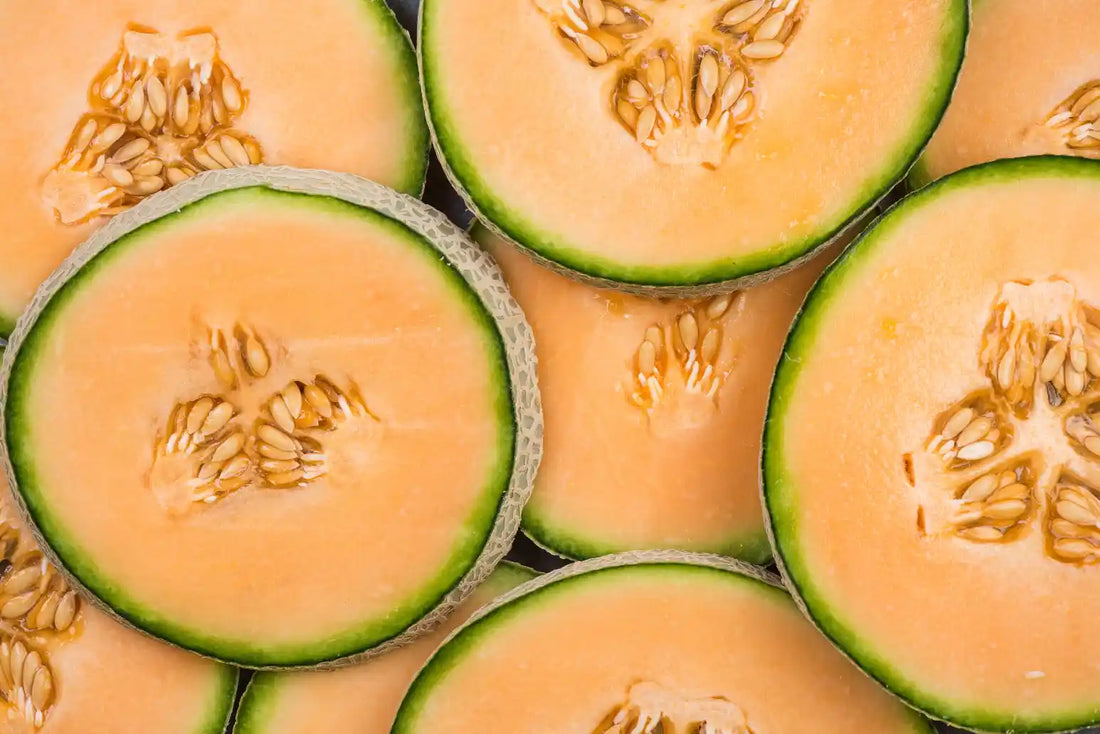
Superoxide dismutase (SOD) in one glance
Superoxide dismutase (SOD) is one of the body’s own frontline antioxidant enzymes, always present as part of our natural defence system. It neutralises superoxide radicals before they can trigger oxidative stress, helping to protect cells and tissues. Small amounts are also found in foods such as fruits and vegetables, though they are unstable and easily degraded. In beauty and wellness, SOD is studied for its role in reinforcing antioxidant balance, stress resilience, and overall vitality, particularly as natural defences decline with age and lifestyle factors.
The essentials
What it is: SOD is a family of enzymes (SOD1, SOD2, SOD3) that convert superoxide radicals into less reactive molecules.
Where it belongs: It forms part of the body’s built-in antioxidant defence network, working alongside catalase and glutathione peroxidase.
Why it matters: Oxidative stress is linked to fatigue, stress, and premature ageing. Studies with protected melon SOD concentrates have shown measurable improvements in perceived stress, fatigue, and quality of life compared with placebo.
Results from within
Not all SOD is the same. Because it is a protein sensitive to digestion, the way it is extracted, standardised, and delivered determines whether it has any effect. To be effective, SOD must be protected with technologies such as microencapsulation or lipid coating, which safeguard its activity and allow consistent absorption in small, once-daily doses.
What makes SOD from melon unique is that it works as an enzymatic antioxidant, catalytic by nature, continuously neutralising superoxide radicals. This is different from high-dose antioxidant nutrients such as vitamin E or vitamin A derivatives, which neutralise radicals once and are then spent. SOD, by contrast, recycles itself and provides continuous support at low physiological doses, offering balance rather than excess.
Natural sources
SOD occurs naturally in many plants, including melons, but dietary amounts are low and unstable. Supplementation with standardised, protected concentrates is the only reliable way to achieve measurable activity levels.
Three things to look for in an SOD formula
1. Defined activity – a stated SOD activity per daily dose (e.g., ~140 U SOD).
2. Protected format and provenance – technologies such as coating or microencapsulation to safeguard activity during digestion, combined with transparent sourcing and European quality standards.
3. Human-research alignment – formats and doses that mirror published clinical studies.
Extramel® — our selected form of SOD
What it is
Extramel® is a proprietary, coated melon juice concentrate (Cucumis melo) standardised for SOD activity. Each capsule delivers 10 mg of concentrate, equivalent to approximately 140 U SOD, in a protected, once-daily format.
About SOD activity: Enzymes are measured by activity rather than weight. One International Unit (IU) of SOD is defined as the amount of enzyme that catalyses the conversion of one micromole of superoxide radicals per minute under standard conditions. Extramel® provides ~140 IU per daily dose, the same level consistently used in clinical trials.
What the research shows
- Stress and fatigue: In a randomised, placebo-controlled trial over 12 weeks (84 days), adults taking Extramel® reported significantly lower perceived stress, improved physical and mental fatigue, and higher quality-of-life scores.
Why we selected it
Extramel® reflects the principle that efficacy depends on both the active and its delivery. SOD is fragile and cannot survive digestion without protection. By standardising activity and applying patented coating technology, Extramel® provides reproducible results at a very low daily dose. With clinical validation, European provenance, and transparent quality standards, it fits seamlessly into our philosophy of minimalist, science-led formulations that deliver meaningful outcomes.
References
[1] Milesi MA, et al. (2009). Pilot double-blind, placebo-controlled trial of a proprietary melon juice concentrate (Extramel®) on stress and fatigue. Nutrition Journal, 8:40.
[2] Carillon J, et al. (2014). Randomised, double-blind, placebo-controlled trial: melon SOD concentrate and perceived stress, fatigue, quality of life. Nutrients, 6(6):2348–2359.
[3] Lemaire B, et al. (2015). SOD B Dimpless® and cellulite: RCT (28–56 days; 40 mg/day). Phytothérapie (summary reports).
📌 Disclaimer: This article is for informational purposes only and does not offer medical advice or make health claims. It outlines ingredient characteristics based on publicly available research. Individual responses may vary. For personal health decisions, please consult a qualified healthcare professional.